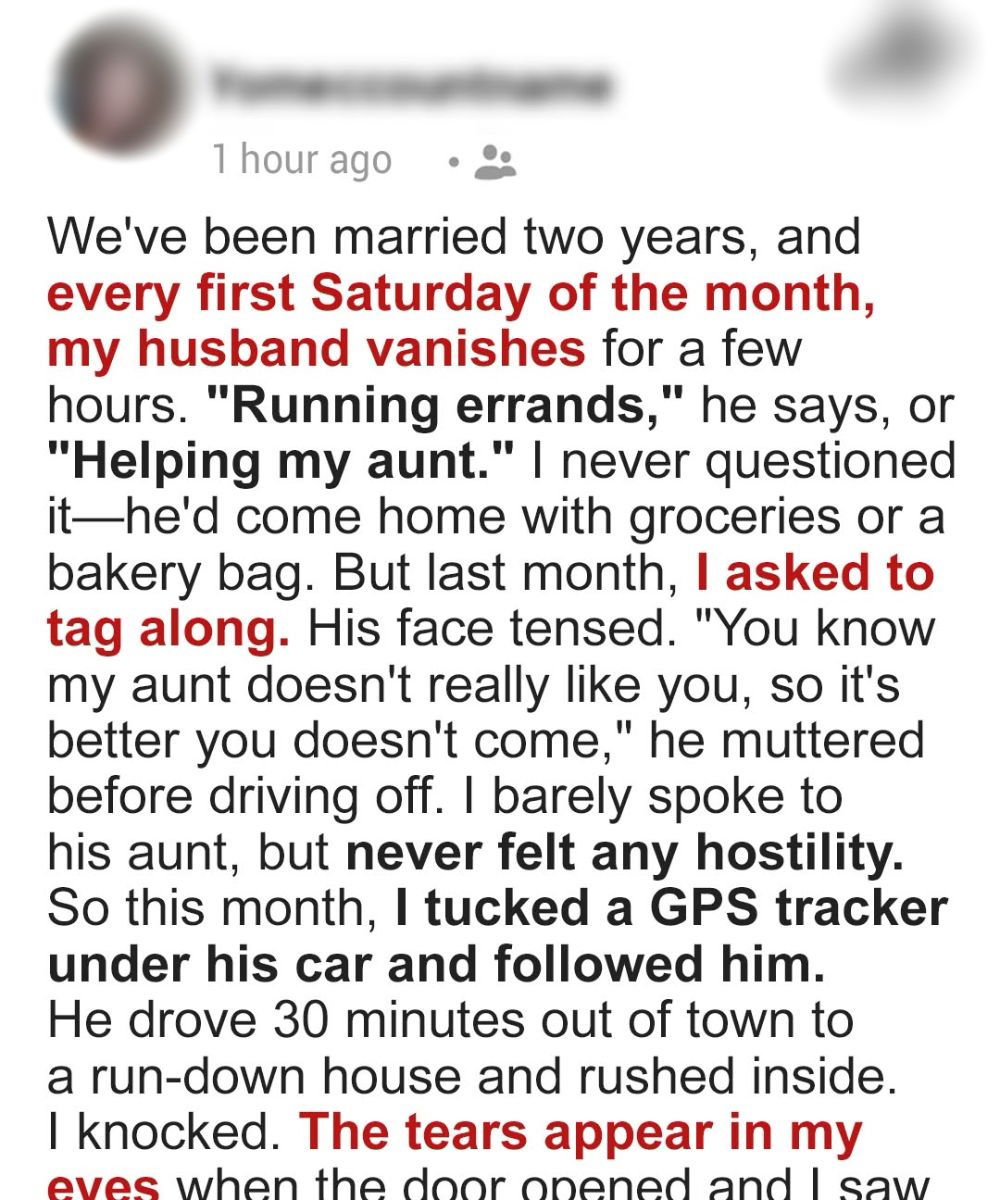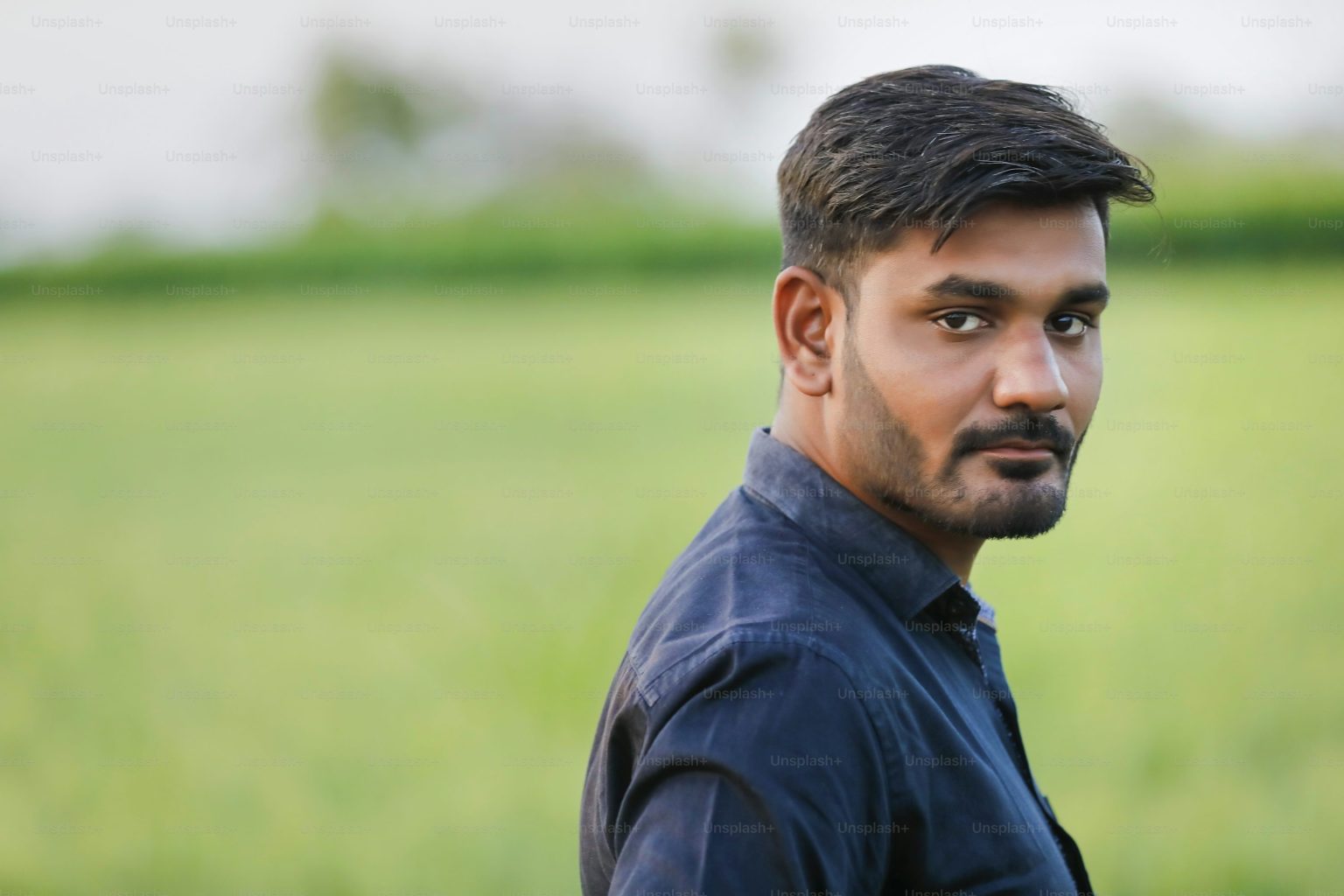The Vanishing Act That Shattered Our Marriage
I never thought something as seemingly ordinary as my husband disappearing every first Saturday of the month would unravel the very foundation of our marriage. At first, I dismissed it—harmless errands or family visits, nothing more.
But when the quiet excuses gave way to whispered secrets, my curiosity morphed into a relentless pursuit of truth. What I discovered behind closed doors was so unexpected, so heartbreaking, that it made me question everything I believed about the man I vowed to love forever.

Jeremy and I met three years ago on a rainy day, his coffee spilling slightly as he bumped into me. Flustered and apologetic, he wiped his hands on napkins, cheeks flushed like a boy caught in the rain—and in that moment, fate felt tangible.
“I’m so sorry. Let me buy you another latte,” he offered, a shy smile breaking through.
“Only if you promise not to spill this one too!” I teased, and from there, magic unfolded.
Our early days were filled with handwritten notes tucked into my work bag, spontaneous slow dances in our cramped kitchen, and his comforting embrace during thunderstorms—the little moments that stitched our souls together.
After a whirlwind year, Jeremy proposed right where we first crossed paths. Our wedding was small, intimate—just close family and friends bearing witness to a promise we believed would last forever.
For two years, our life hummed with shared dreams. We talked endlessly about children, nursery colors, and the future. I planned to scale back at work, ready to step into motherhood, ready to build the family we dreamed of.
But there was one mystery I chose to overlook: every first Saturday, Jeremy vanished for hours.
“Just errands, babe,” he’d say, kissing my forehead. “Want to come?”
“Nah, boring stuff. I’ll grab groceries later,” he’d reply, returning with bags full of bakery treats and humming softly.

Sometimes, he claimed he was helping Aunt Lina with her garden—a woman I barely knew, whom I’d met only twice.
Then one morning, sensing something amiss, I casually asked, “Mind if I come along? I’d love to meet Aunt Lina properly.”
Jeremy’s fork clattered against his plate. “No, Clover. She doesn’t like you. She thinks you’re too young, too… different. It’s better if you stay here.”
His words hung in the air, a polite but firm dismissal that shattered my heart. And just like that, he was gone.
Days stretched into an unbearable silence. Jeremy was distant, distracted, jumpy at every phone ring—the man who once shared everything now locked behind walls I couldn’t scale.
Desperation led me to buy a tiny GPS tracker, which I slipped under his car one quiet afternoon. I felt like an intruder in my own life, but I needed answers.
On the next rainy Saturday, Jeremy was restless.

“Aunt Lina’s got a big garden project,” he muttered, barely meeting my eyes.
I tracked his movements from our window. The dot moved far beyond our cozy suburb to a forgotten neighborhood—houses peeling, yards wild, rain beating down like a dirge.
His car was parked in front of a dilapidated house. The porch sagged, paint peeled, and the windows stared blank and empty.
The air was thick with silence.
Summoning every ounce of courage, I knocked.

A woman opened the door—a kind face framed by gray hair, gentle eyes inviting me in.
“Are you here for the group?” she asked.
I nodded, bewildered.
Inside, folding chairs formed a circle, soft music whispered through the room, and on the wall hung a sign that froze my heart:
“Grief Counseling: For Those Who Lost a Spouse.”
And in the middle of the circle stood Jeremy, clutching a framed photo, shoulders trembling with grief I never imagined.
Sometimes the truths we fear most are the ones that change everything—because love isn’t just about holding on; sometimes, it’s about learning how to let go.

I couldn’t make out the photo clearly, but every word Jeremy spoke pierced me like a shard of ice.
“It’s been three years since I lost Hannah,” he confessed, voice trembling. “Three years since cancer stole the light of my life. Some nights I still reach over, expecting her to be there—her smile, her warmth.”
Soft murmurs of sympathy floated through the room, but I stood frozen, tears streaming down—not from sorrow, but from disbelief.
Hannah? My Jeremy had never mentioned another woman. He told me I was his first, his only.
“She would’ve turned 32 next month,” he said, holding the photo higher. “We had plans—children’s names picked out, dreams of a house with a garden for them to run in.”
The elderly woman who had welcomed me reached out, her hand gentle on my shoulder.

“Are you alright, dear? You look pale.”
Jeremy’s gaze found mine across the circle, his face draining of color. The photo slipped from his fingers and fell softly to the floor.
For a suspended moment, shock and fear locked us in place.
“I… need some air,” he muttered, moving abruptly toward the door.
“Take your time,” the facilitator said quietly.
Outside, on the rain-slicked porch, Jeremy grabbed my arm with a grip sharp enough to sting.
“Clover? What the hell are you doing here?” His whisper was harsh, laden with panic.
I wrenched free, tears streaking my cheeks.
“I wanted to make peace with your aunt, but she doesn’t even live here, does she? What’s really going on? Who is Hannah?”
He ran his hands through his hair, pacing, trapped.
“Clover, I can explain—”

“Explain? That you’ve been lying this whole time? That you invented a dead wife? When were you planning to tell me?”
“She’s not real,” he blurted, voice breaking. “I made her up.”
I stared, feeling the ground vanish beneath me.
“You made her up?”
His face crumpled, pain etched deep. “I’ve always dreamed of acting. Since I was a kid. But my parents forced me into business school, told me it was a waste of time. So I started coming to these groups—to practice. To feel real emotions.”
“Practice?”
“I play roles. Last month I was an ex-alcoholic in rehab. Another time, a man with six months to live. Today, a widower.”
My stomach churned.
“Jeremy, these people are hurting, really hurting. And you’re pretending?”
“It’s not a game!” His eyes pleaded. “It’s how I build my craft. I’m auditioning soon. I just need more practice.”
I turned away, unable to face him.
“Clover, wait—”
But I didn’t want to wait anymore.
The rain soaked me as I fled to my car, numb to the cold, drowning in betrayal. The windshield echoed my uncertainty with each raindrop.
That night, Jeremy came home with groceries and a box of pastries—the familiar masking a fractured silence.
“Please don’t tell anyone,” he whispered.
“Tell anyone that my husband is a master of lies, who exploits real grief for his own gain?”

“It’s not like that—”
“Then what is it? Because if you can fake this, who knows what else you’ve lied about?”
He opened his mouth, but I stopped him.
“I need time.”

It’s been three weeks since.
Jeremy sleeps in the guest room, walks on eggshells, tries to reach out to a heart that no longer hears him.
Trust isn’t just broken—it’s shattered, scattered beyond repair.
What I uncovered was more than just deception—it was the unraveling of every truth I thought I knew. Jeremy’s monthly disappearances weren’t errands or family visits, but a tangled performance rooted in lies and longing. His fabricated grief was a mask hiding a desperate attempt to escape reality—a reality he never shared with me.
Now, as I piece together the shards of my broken trust, I’m learning that healing means facing uncomfortable truths and forging a new path—one built on honesty, self-respect, and the courage to move forward alone.